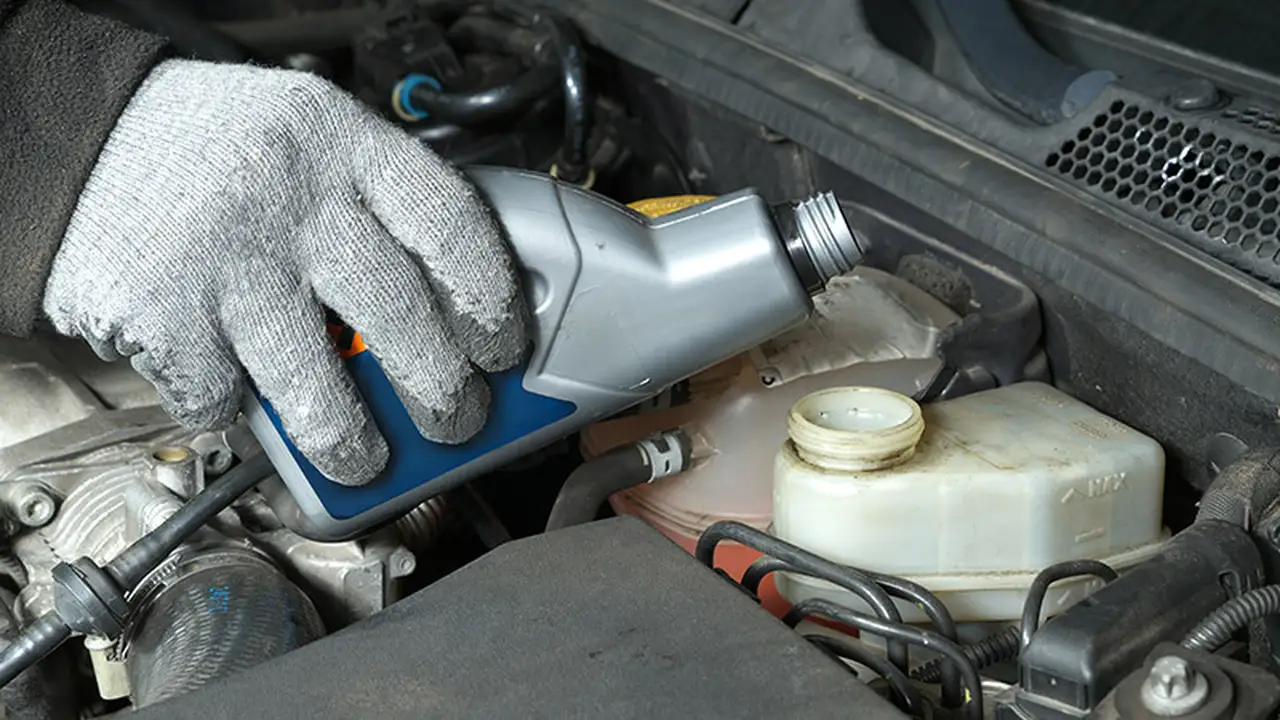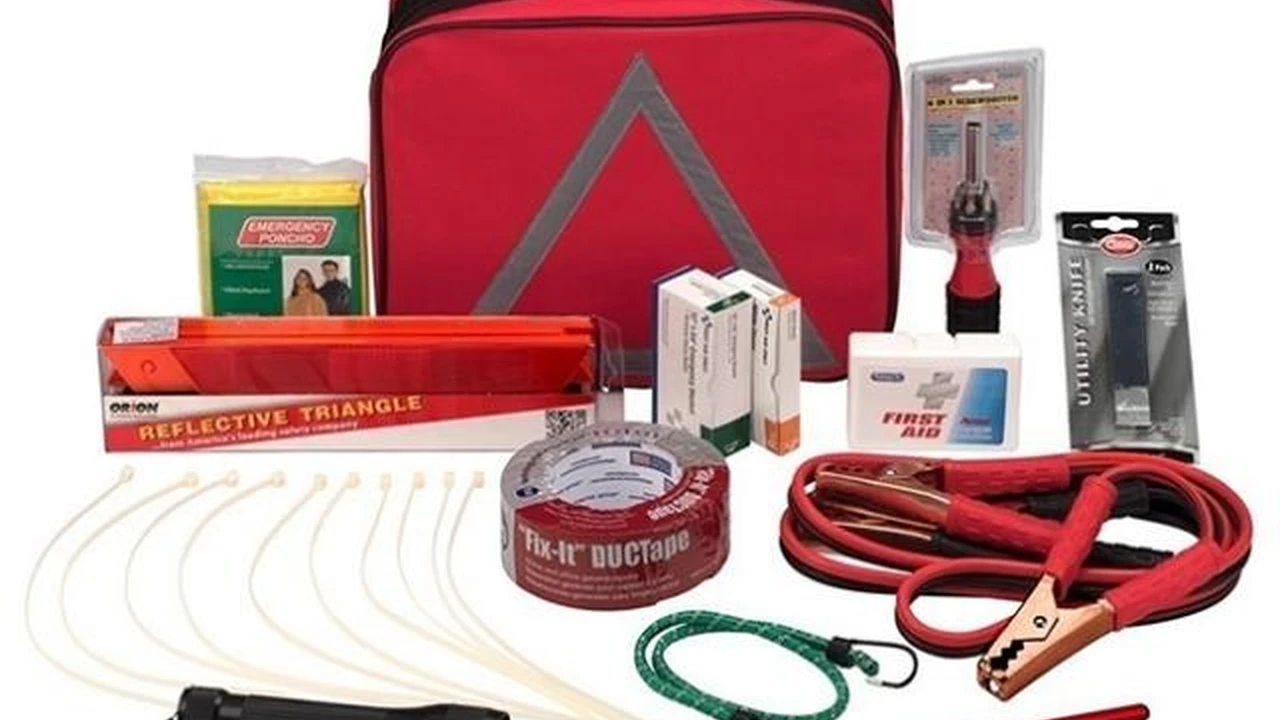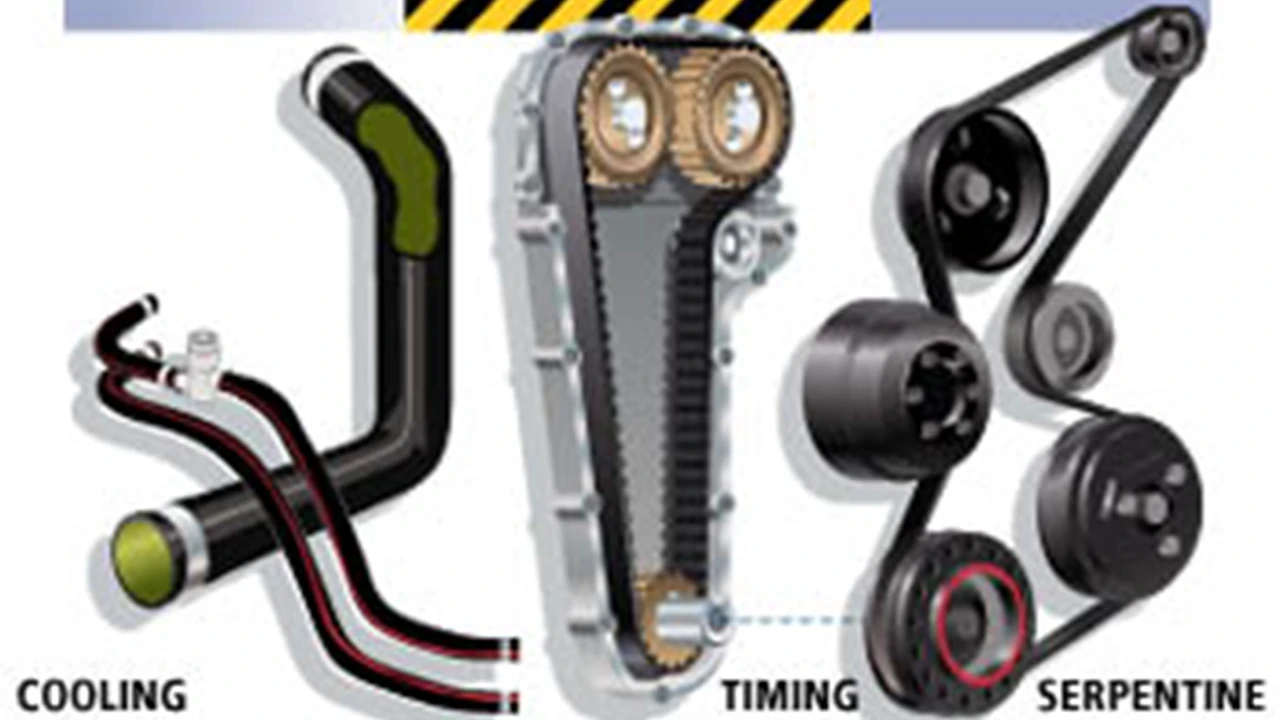7 Essential Fluids Every Car Should Have for Emergencies

Introduction Why Your Car Needs More Than Just Gas Essential Fluids for Car Maintenance
Okay, so you're cruising down the highway, windows down, tunes blasting. Life's good, right? Until that dreaded warning light pops on. Suddenly, good vibes are replaced with a sinking feeling. What's wrong? Chances are, it's not just about running out of gas. Your car is a complex machine, and it needs more than just fuel to keep running smoothly. That's where essential fluids come in. Think of them as the lifeblood of your ride. They keep everything lubricated, cooled, and running as it should. Neglecting these fluids can lead to serious (and expensive!) problems down the road. So, let's dive into the seven essential fluids every car should have, especially when you're dealing with emergencies.
Coolant or Antifreeze Keeping Your Engine Cool and Preventing Overheating Car Coolant Guide
First up, and arguably one of the most crucial, is coolant (also known as antifreeze). This stuff is a lifesaver, literally. Its primary job is to regulate your engine's temperature. When your engine runs, it generates a ton of heat. Coolant circulates through the engine, absorbing this heat and dissipating it through the radiator. Without coolant, your engine would overheat in a matter of minutes, leading to catastrophic damage. But coolant does more than just prevent overheating. It also protects your engine from freezing in cold weather. That's why it's called "antifreeze" too! The correct mixture of coolant and water (usually a 50/50 mix) will prevent your engine block from cracking in freezing temperatures.
Product Recommendations:
- Prestone All Vehicles Antifreeze + Coolant: A universal coolant that works with all makes and models. Easy to find and reasonably priced (around $15-$20 per gallon).
- Zerex Asian Vehicles Antifreeze/Coolant: Specifically formulated for Asian vehicles. Offers superior protection against corrosion. Expect to pay around $20-$25 per gallon.
- Peak Original Equipment Technology Antifreeze + Coolant: Comes in various formulations tailored to specific vehicle manufacturers (e.g., GM, Ford, Chrysler). Priced similarly to Prestone.
Usage Scenarios:
- Regular Maintenance: Check your coolant level regularly (when the engine is cool, of course!) and top it off as needed.
- Emergency Overheating: If your engine overheats, pull over immediately and let it cool down before checking the coolant level. Adding coolant to a hot engine can be dangerous.
- Cold Weather Protection: Ensure your coolant concentration is adequate for the expected temperatures in your area.
Comparison: Prestone is a good all-around choice for most vehicles. Zerex offers enhanced protection for Asian vehicles. Peak provides OEM-specific formulations for optimal performance.
Engine Oil The Lifeblood of Your Engine Essential Car Engine Oil Types and Brands
Engine oil is another critical fluid that keeps your engine running smoothly. It lubricates the moving parts, reducing friction and wear. Without oil, these parts would grind against each other, causing serious damage and eventually leading to engine failure. Engine oil also helps to cool the engine, clean it by carrying away dirt and debris, and protect it from corrosion. Choosing the right engine oil is crucial for the longevity of your engine. Different vehicles require different types of oil, so consult your owner's manual for recommendations.
Product Recommendations:
- Mobil 1 Synthetic Motor Oil: A top-rated synthetic oil that provides excellent protection and performance. Available in various viscosities. Price: $25-$35 per 5-quart jug.
- Castrol Edge Synthetic Motor Oil: Another high-quality synthetic oil known for its superior wear protection. Price: $25-$35 per 5-quart jug.
- Valvoline High Mileage with MaxLife Technology: Specifically formulated for vehicles with over 75,000 miles. Helps to reduce leaks and oil consumption. Price: $20-$30 per 5-quart jug.
Usage Scenarios:
- Regular Oil Changes: Follow your manufacturer's recommended oil change interval.
- Low Oil Level: Check your oil level regularly and top it off as needed.
- High Mileage Vehicles: Consider using a high-mileage oil to provide extra protection.
Comparison: Mobil 1 and Castrol Edge are both excellent choices for performance and protection. Valvoline High Mileage is a great option for older vehicles.
Brake Fluid Ensuring Safe Stops Essential Brake Fluid Types and Maintenance
Brake fluid is essential for your car's braking system. It transmits the force from your brake pedal to the brake calipers, which then squeeze the brake pads against the rotors to stop your car. Without brake fluid, your brakes simply wouldn't work. It's that important! Over time, brake fluid can absorb moisture from the air, which can lead to corrosion and reduced braking performance. That's why it's important to have your brake fluid flushed and replaced regularly.
Product Recommendations:
- Prestone DOT 3 Brake Fluid: A standard DOT 3 brake fluid that meets or exceeds OEM specifications. Price: $5-$10 per bottle.
- Valvoline DOT 4 Brake Fluid: Offers slightly better performance than DOT 3, with a higher boiling point. Price: $8-$12 per bottle.
- ATE Typ 200 DOT 4 Brake Fluid: A high-performance brake fluid with an extremely high boiling point, ideal for track days or aggressive driving. Price: $20-$30 per bottle.
Usage Scenarios:
- Regular Brake Fluid Flushes: Follow your manufacturer's recommended brake fluid flush interval.
- Spongy Brake Pedal: If your brake pedal feels spongy or soft, it could be a sign of air in the brake lines or contaminated brake fluid.
- Track Days: Use a high-performance brake fluid like ATE Typ 200 for track days to prevent brake fade.
Comparison: Prestone DOT 3 is a good basic brake fluid. Valvoline DOT 4 offers slightly better performance. ATE Typ 200 is designed for high-performance applications.
Power Steering Fluid Making Steering Easier and Smoother Essential Power Steering Fluid Types and Problems
Power steering fluid is used in vehicles with power steering systems to make steering easier and smoother. It helps to reduce the amount of effort required to turn the steering wheel, especially at low speeds. Without power steering fluid, steering would be much more difficult, especially for larger vehicles. Like other fluids, power steering fluid can degrade over time, leading to reduced performance and potential damage to the power steering pump.
Product Recommendations:
- Prestone Power Steering Fluid: A universal power steering fluid that works with most vehicles. Price: $8-$12 per bottle.
- Honda Power Steering Fluid: Specifically formulated for Honda and Acura vehicles. Price: $15-$20 per bottle.
- Royal Purple Max ATF Synthetic Automatic Transmission Fluid: Can sometimes be used as a high-performance power steering fluid (check your owner's manual). Price: $20-$25 per quart.
Usage Scenarios:
- Regular Power Steering Fluid Checks: Check your power steering fluid level regularly and top it off as needed.
- Noisy Power Steering Pump: A whining or groaning noise from the power steering pump could indicate low fluid level or a problem with the pump.
- Hard Steering: If steering becomes difficult, check the power steering fluid level.
Comparison: Prestone is a good general-purpose power steering fluid. Honda fluid is recommended for Honda and Acura vehicles. Royal Purple ATF can be used in some applications for improved performance.
Windshield Washer Fluid Keeping Your Windshield Clean and Clear Essential Windshield Washer Fluid Types and Ingredients
Windshield washer fluid is essential for keeping your windshield clean and clear, especially in bad weather. It helps to remove dirt, grime, bugs, and other debris from the windshield, improving visibility and safety. Using plain water is not recommended, as it can freeze in cold weather and doesn't clean as effectively. Windshield washer fluid typically contains detergents and antifreeze to prevent freezing.
Product Recommendations:
- Rain-X 2-in-1 Windshield Washer Fluid: Contains a water-repellent formula that helps to improve visibility in rain and snow. Price: $5-$10 per gallon.
- Prestone All Season Windshield Washer Fluid: Provides good cleaning performance and freeze protection. Price: $3-$7 per gallon.
- Nextzett Kristall Klar Washer Fluid Concentrate: A concentrated formula that needs to be diluted with water. Provides excellent cleaning power. Price: $15-$20 per liter (concentrate).
Usage Scenarios:
- Regular Use: Fill your windshield washer fluid reservoir regularly.
- Bug Removal: Use windshield washer fluid to remove bugs and other debris from your windshield.
- Winter Driving: Use a winter-specific windshield washer fluid with a lower freezing point.
Comparison: Rain-X offers water-repellent properties. Prestone is a good all-around choice. Nextzett Kristall Klar is a concentrated formula that provides excellent cleaning.
Transmission Fluid Keeping Your Transmission Running Smoothly Essential Transmission Fluid Types and Maintenance
Transmission fluid is used in automatic transmissions to lubricate the gears and other moving parts, allowing them to shift smoothly. It also helps to cool the transmission and protect it from wear. Like engine oil, transmission fluid can degrade over time, leading to reduced performance and potential damage to the transmission. Different vehicles require different types of transmission fluid, so consult your owner's manual for recommendations. Using the wrong type of transmission fluid can cause serious damage.
Product Recommendations:
- Valvoline MaxLife DEX/MERC Automatic Transmission Fluid: A synthetic blend ATF that is compatible with a wide range of vehicles. Price: $8-$12 per quart.
- Mobil 1 Synthetic Automatic Transmission Fluid: A full synthetic ATF that provides excellent protection and performance. Price: $10-$15 per quart.
- Honda ATF-DW1 Automatic Transmission Fluid: Specifically formulated for Honda and Acura vehicles with automatic transmissions. Price: $12-$18 per quart.
Usage Scenarios:
- Regular Transmission Fluid Changes: Follow your manufacturer's recommended transmission fluid change interval.
- Rough Shifting: Rough or jerky shifting could indicate low transmission fluid level or a problem with the transmission.
- Transmission Slipping: Transmission slipping could also indicate a problem with the transmission fluid.
Comparison: Valvoline MaxLife is a good multi-vehicle option. Mobil 1 offers superior performance. Honda ATF-DW1 is recommended for Honda and Acura vehicles.
Fuel Injector Cleaner Keeping Your Fuel System Clean and Efficient Essential Fuel Injector Cleaner Types and Benefits
While not technically a fluid you *constantly* need, fuel injector cleaner is a valuable addition to your emergency car kit. Over time, deposits can build up in your fuel injectors, reducing their efficiency and affecting your engine's performance. Fuel injector cleaner helps to dissolve these deposits, restoring your fuel injectors to their optimal condition. This can lead to improved fuel economy, smoother idling, and better acceleration. It's a good idea to use fuel injector cleaner every few thousand miles, or whenever you notice a decrease in your engine's performance.
Product Recommendations:
- Sea Foam Motor Treatment: A versatile product that can be used in the fuel tank, oil crankcase, or even the intake manifold. Helps to clean fuel injectors, remove carbon deposits, and stabilize fuel. Price: $8-$12 per can.
- Chevron Techron Fuel Injector Cleaner: A popular fuel injector cleaner that is known for its effectiveness. Contains Techron, a powerful cleaning agent. Price: $10-$15 per bottle.
- Lucas Oil Fuel Treatment: Another popular fuel treatment that helps to clean fuel injectors, lubricate fuel pumps, and stabilize fuel. Price: $7-$10 per bottle.
Usage Scenarios:
- Regular Use: Add fuel injector cleaner to your fuel tank every few thousand miles.
- Rough Idling: Use fuel injector cleaner if your engine is idling roughly.
- Poor Fuel Economy: Use fuel injector cleaner if you notice a decrease in your fuel economy.
Comparison: Sea Foam is a versatile product with multiple uses. Chevron Techron is known for its powerful cleaning action. Lucas Oil Fuel Treatment is a good all-around fuel treatment.
So there you have it – the seven essential fluids that every car should have. Keeping these fluids topped off and in good condition will help to ensure that your car runs smoothly and reliably for years to come. Don't wait for an emergency to check these fluids; make it a part of your regular car maintenance routine. Your car (and your wallet) will thank you!
:max_bytes(150000):strip_icc()/277019-baked-pork-chops-with-cream-of-mushroom-soup-DDMFS-beauty-4x3-BG-7505-5762b731cf30447d9cbbbbbf387beafa.jpg)






